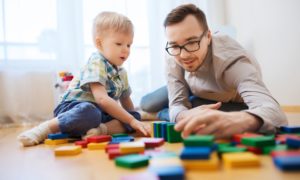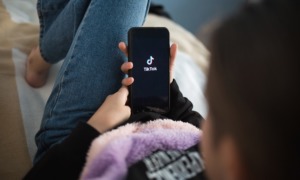![]()
Empathy — the capacity to identify others’ needs and emotions, and to provide supportive care that meets those needs.![]()
Our recent research shows that parents who express empathy toward their teenagers may give teens a head start in developing the skill themselves. In addition, adolescents who show empathy and support toward their friends are more likely to become supportive parents, which may foster empathy in their own offspring.
How we did our work
The KLIFF/VIDA study at the University of Virginia has tracked 184 adolescents for more than 25 years: from age 13 well into their 30s.
Starting in 1998, teens came to the university every year with their parents and closest friend, and a team of researchers recorded videos of their conversations. Researchers observed how much empathy the mother showed to her 13-year-old when her teen needed help with a problem. We measured empathy by rating how present and engaged mothers were in the conversation, whether they had an accurate understanding of their teen’s problem, and how much help and emotional support they offered.
Then, each year until teens were 19 years old, we observed whether teens showed those same types of empathic behaviors toward their close friends.

fizkes/Shutterstock
Teenage friendships are an important place to practice the empathy that will later help in parenting.
A decade later, when some of those same teens were starting to have children of their own, we surveyed them about their own parenting. We also asked them about their young children’s empathy. For example, parents rated how often their child “tries to understand how others feel” and “tries to comfort others.”
We found that the more empathic a mother was toward her teenager at age 13, the more empathic the teen was toward their close friends across the adolescent years. Among teens who later had kids themselves, the ones who had shown more empathy for close friends as adolescents became more supportive parents as adults. In turn, these parents’ supportive responses to their children’s distress were associated with reports of their young children’s empathy.
Why it matters
The ability to empathize with other people in adolescence is a critical skill for maintaining good relationships, resolving conflict, preventing violent crime and having good communication skills and more satisfying relationships as an adult.
Adults want teens to develop good social skills and moral character, but simply telling them to be kind doesn’t always work.
Our findings suggest that if parents hope to raise empathic teens, it may be helpful to give them firsthand experiences of being understood and supported.
But teens also need opportunities to practice and refine these skills with their peers. Adolescent friendships may be an essential “training ground” for teens to learn social skills such as empathy, how to respond effectively to other people’s suffering, and supportive caregiving abilities that they can put to use as parents. Our lab’s most recent paper presents some of the first evidence that having supportive teenage friendships matters for future parenting.
What’s next
We’re continuing to follow these participants to understand how their experiences with parents and peers during adolescence might play a role in how the next generation develops.
[Related Report: Building evidence together for a better tomorrow — The two-generational approach]
We’re also curious to understand what factors might interrupt intergenerational cycles of low empathy, aggression and harsh parenting. For example, it’s possible that having supportive friends could compensate for a lack of empathy experienced from one’s family.
While it’s true that you can’t choose your family, you can choose your friends. Empowering teens to choose friendships characterized by mutual understanding and support could have long-term ripple effects for the next generation.
[Related Grant Opportunity: Youth behavioral health workforce development program grants]
***
Dr. Jessica Stern is an Assistant Professor in the Dept. of Psychological Science at Pomona College, where she studies human relationships, attachment, and empathy across the life span. Stern was awarded the National Institute of Child Health & Human Development (NICHD) National Research Service Award.
Joseph P. Allen, Professor of Psychology, University of Virginia. His research focuses on adolescent social development, family relations, peer relations, and problematic behaviors (ranging from delinquency and teen pregnancy to depression and anxiety). Allen has published over 200 articles and book chapters, and is the author of several books. Allen is a Fellow of the American Psychological Association and the Society for Research in Adolescence.
This article is republished from The Conversation under a Creative Commons license. Read the original article. Read more of The Conversation’s Research Briefs for short takes on interesting academic work.
































